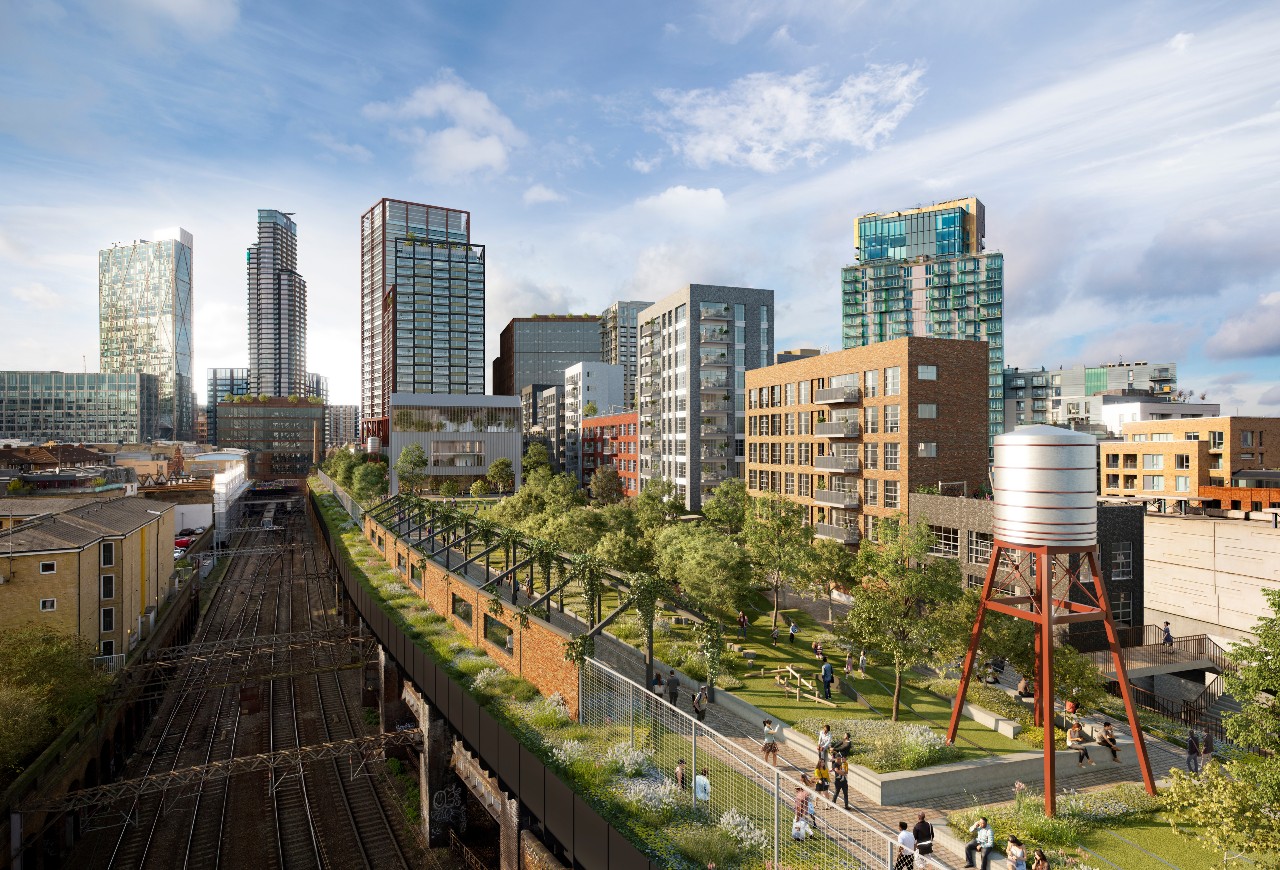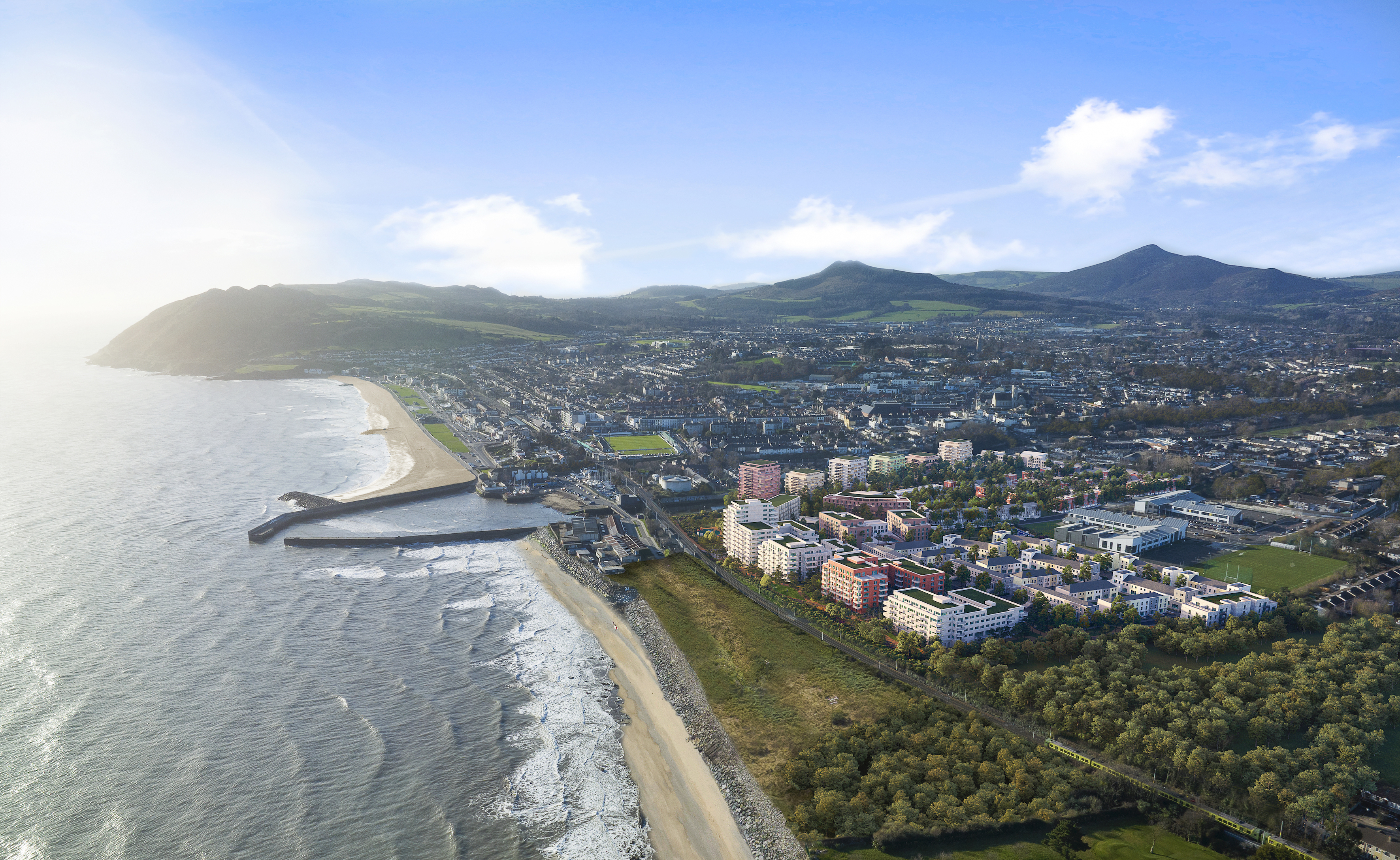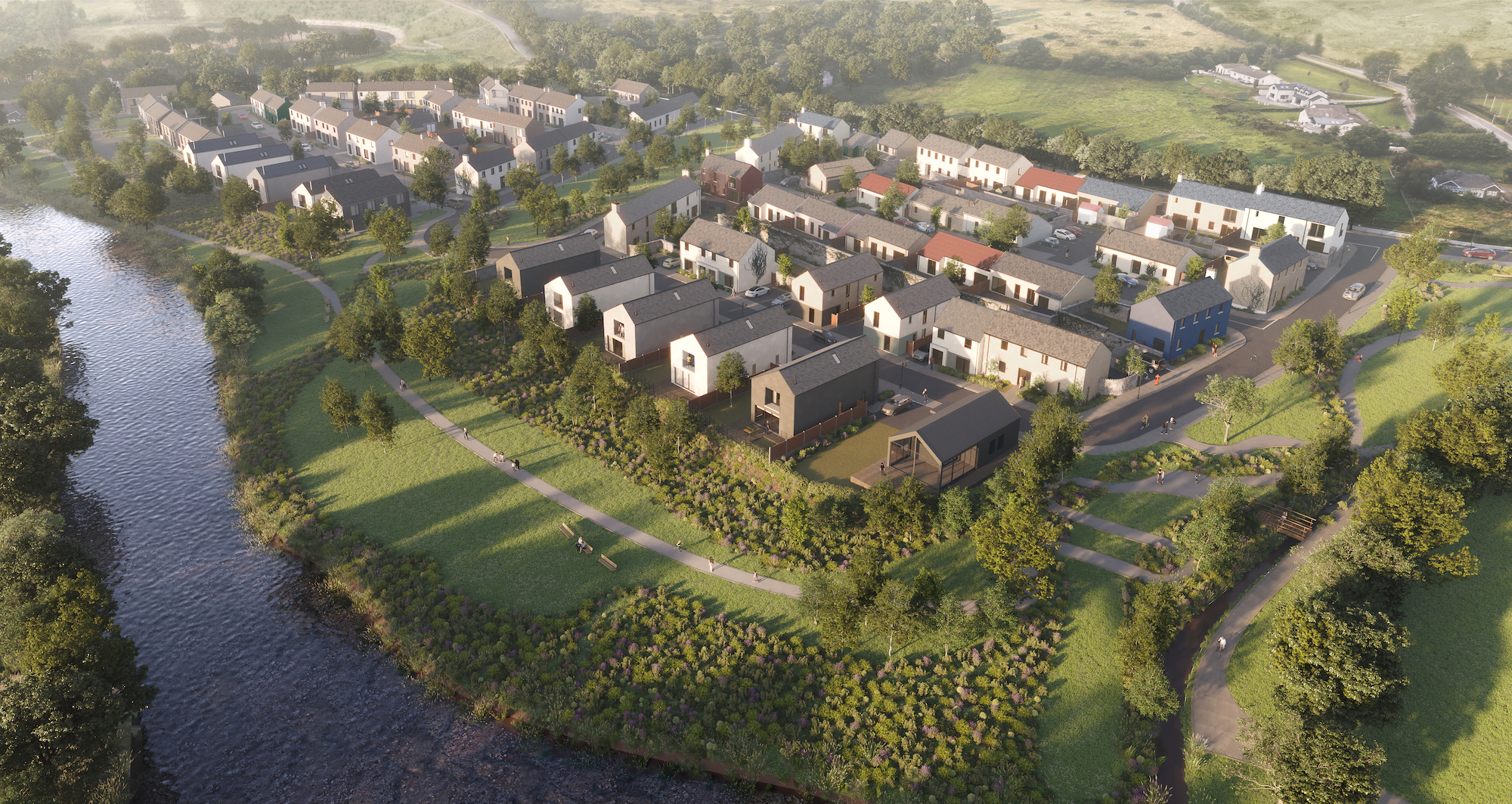Mayor backs Bishopsgate Goodsyard plan
London mayor Sadiq Khan has given the go ahead for the regeneration of Bishopsgate Goodsyard, close to Liverpool Street station, with a living, working, culture and leisure quarter in the heart of the capital. Almost 56 years to the day after a fire laid waste to the site its renaissance has been confirmed, with backing for a masterplan that promises to bring independent traders and business start-ups, homes, vibrancy, culture and a new public park inspired by Manhattan’s High Line.
The mayor’s support is a milestone for joint venture developers, Ballymore and Hammerson, which have been working for 18 years to bring their plans for the former goods depot and station site to this point. Spanning the boroughs of Hackney and Tower Hamlets, the site sits between Shoreditch and the City, being described by Ballymore group managing director John Mulryan as, “one of the greatest remaining opportunities in the whole of central London for major regeneration”.
The masterplan, by architect FaulknerBrowns, sets out a fresh vision for city living and working that is diverse, distinctive and sustainable. It includes 1.4 million square feet of workspace, much of it affordable and catering for small business and the creative industries, as well as a cultural venue and an exhibition space. Many of the 500 homes planned for the development will be designed for families and half of them will be made available on affordable tenures.
Historic structures from the site’s Victorian railway heritage will be retained and brought back into use, including the grade 2 listed, 850 foot long Braithwaite Viaduct, which will become a high level, High Line-style park and urban promenade. Landscape architect Spacehub is responsible for creating the site’s extraordinary new 2.5 acre park, as well as the more intimate outdoor spaces in this car-free environment. Architects working on this large scale project alongside FaulknerBrowns include Buckley Gray Yeoman, Eric Parry Architects and Chris Dyson Architects.
This sensitive and important site has had a lengthy planning history, with its developers first applying for planning consent six years ago. Although the initial proposals were in line with the Interim Planning Guidance adopted for the site in 2010, consultation with the community and key stakeholders made it clear that a rethink was needed. As a result, building heights and housing numbers have been reduced and the proportion of affordable homes increased. “We’ve listened to people and taken their concerns seriously, and the design has changed dramatically,” said Ballymore’s Mulryan. That listening process has included consulting and engaging with more than 2,500 local people and businesses. The developers hope to begin work on the site’s transformation in early 2022, bringing not only a new park, homes and workspace but also the potential for the creation of more than 11,000 jobs. Bishopsgate Goodsyard is set to take its place as a vibrant destination once more.




